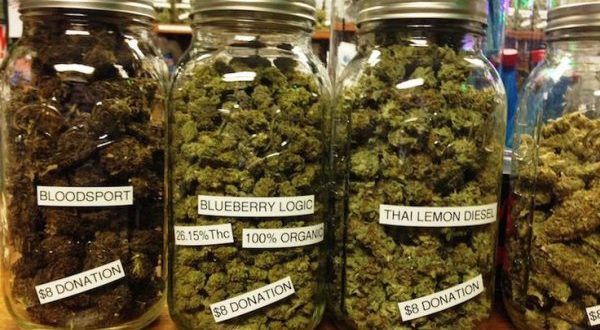By Colin A. Young
State House News Service
There is strong demand among marijuana users for products with high concentrations of THC, the main psychoactive compound that provides many of the drug’s cognitive effects, but Cannabis Control Commission researchers said there is not enough scientific evidence of the risks of high-potency products to recommend setting a limit.
Instead, a report released Thursday by the commission’s research department suggests that marijuana regulators should increase their research and data collection capacity to make it easier to base future decisions regarding THC limits on solid evidence.
The CCC’s research team said the concentration of THC in North American cannabis has increased over the last 25 years, citing a study of federally-seized marijuana that had an average of 4 percent THC in 1995 and an average of 12 percent in 2014.
In legal markets, they said, there are signs of a similar rise but also of a leveling off, and that higher-THC products are growing in market share. Massachusetts retailers regularly offer marijuana flower with THC concentrations in the 20 to 30 percent range, and the THC levels in concentrates can approach 85 percent.
Fulfilling a legislatively-mandated study of high potency marijuana products, CCC researchers looked at sales data for vapes and cannabis concentrate products — which “typically have higher THC concentrations as compared to buds,” they said — and found those products to account for 23 percent of medical market sales and 27 percent of adult-use sales in May 2020. Those product types were the second-largest category of sales, behind traditional marijuana flower.
“Higher concentrations of THC outside of a medical cannabis setting are associated with greater harms for some populations. Among non-medical adult-users (‘recreational’), consumption of products with high THC concentrations is likely associated with greater risks, but current evidence is incomplete,” the CCC’s research department, led by research director Julie Johnson, wrote in its report. “Among non-medical youth users, the use of highly potent THC products carries risks … Among medical cannabis users, evidence is currently insufficient to draw conclusions regarding high THC concentration and effect on the human body.”
The CCC already restricts the dosage of THC allowed in edible marijuana products, capping each serving at a maximum of 5.5 milligrams of THC and limiting each package to no more than 20 servings. All marijuana products legally sold in Massachusetts are required to include information on the amount of THC and other compounds contained.
The research team was hampered by the fact that most of the research conducted on cannabis — which remains wholly illegal and under the most restrictive drug category at the federal level — has historically used cannabis grown by the University of Mississippi, which could be of poor quality, is low in THC and “does not mirror the array of products and THC concentrations sold at cannabis retailers (or in the illicit market) or the variety and regional differences in cannabis,” the CCC team said.
The study was further limited by the CCC’s available sales data, which the researchers said includes “no knowledge of what percentage of products under the ‘potentially high THC products’ category, such as concentrates and vape products, are high THC.” Instead, the researchers wrote, they opted to “stratify products by product category as an imperfect tool to examine demand for higher THC products (e.g., concentrates, vape products).”
The CCC’s study was mandated by the Legislature in its 2017 rewrite of the legalization bill approved by voters in 2016. The law specifically called for the CCC to study “the effects of marijuana and marijuana products with a high potency of tetrahydrocannabinol on the human body and recommend whether there should be restrictions on the potency of tetrahydrocannabinol in marijuana and marijuana products.”
Though it said it could not directly study the effects high-THC products have on the human body as the Legislature had assigned for various practical and political reasons, the CCC’s research team “analyzed medical and adult-use sales data by cannabis product category and conducted a high-level scoping literature review, including literature reviews and meta-analyses of relevant scientific and gray literature that reports on health effects of high-THC cannabis.”
The Department of Public Health reviewed the report, the CCC said.
The CCC pointed to “articles for policy options and analysis pertaining to cannabis THC concentrations limits” that it reviewed, and said the papers identified “multiple policy mechanisms that could impact THC concentrations in the legal market, including, tax based on concentration, concentration related price floors, THC concentration limits, initial restrictions on edibles and high-THC products, dose/serving size labeling requirements, and data collection requirements to monitor trends and harms.”
While those ideas exist in theory, CCC researchers said there has been no specific assessment of those policy options and that the potential unintended consequences have not been studied.
“Therefore, Commission staff do not find sufficient evidence to recommend a concentration cap, especially in light of potential unintended consequences discussed below,” the researchers wrote before explaining that a THC concentration cap could encourage people to turn to the illicit market for super potent products.
 New Bedford Guide Your Guide to New Bedford and South Coast, MA
New Bedford Guide Your Guide to New Bedford and South Coast, MA









